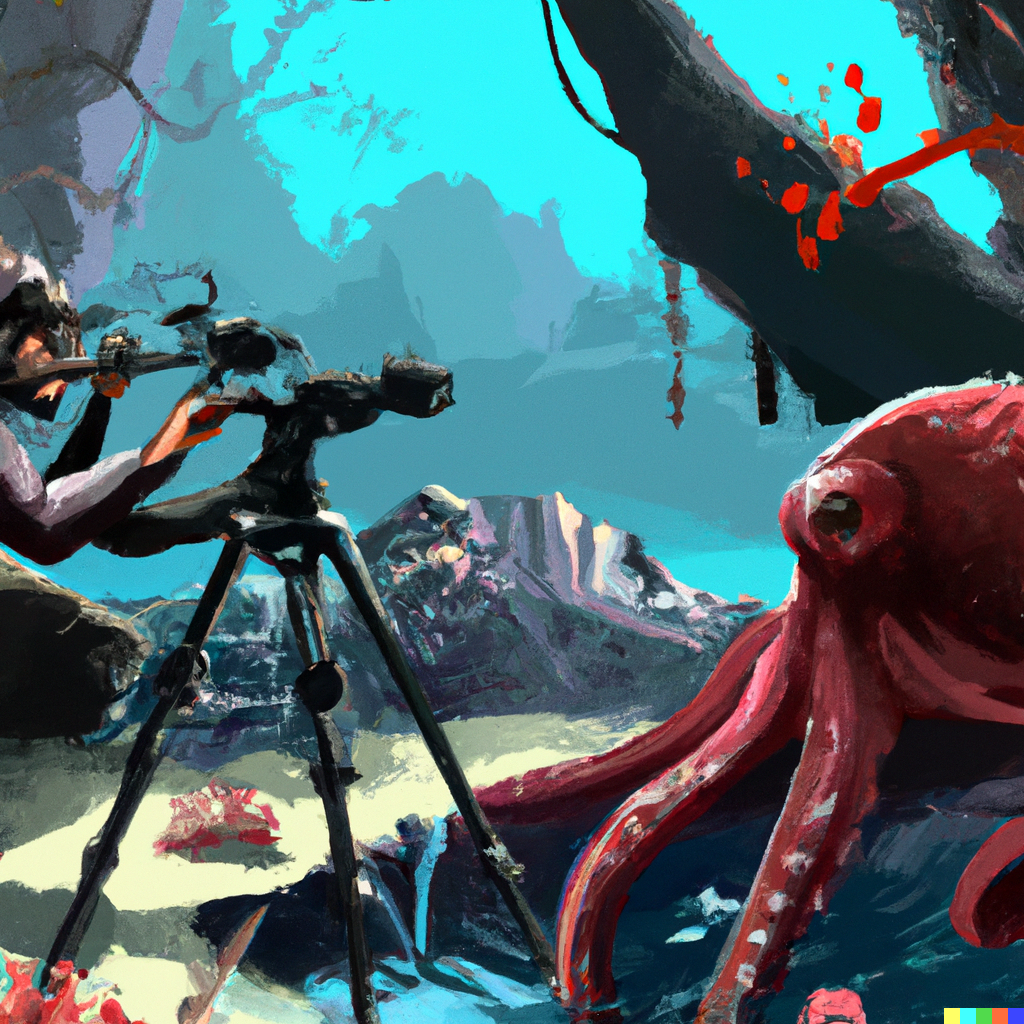There will be lots of commentary on how Sora will change everything. Everything. The movies we watch, the videos we consume, the advertisements we avoid and much more. This is the ChatGPT moment for video.
Artificially generated video has been here for some time. You can even call animation artificially generated. Start from Disney’s Steamboat Willie (did anyone say death of film at that time?) to present-day photo realistic video that is used in high end gaming and of course, films and tv. But the major difference is that Sora can use text to generate a very reasonably good video. The release notes and samples are available on www.openai.com/sora
Check out the sample from the prompt “A movie trailer featuring the adventures of the 30 year old space man wearing a red wool knitted motorcycle helmet, blue sky, salt desert, cinematic style, shot on 35mm film, vivid colors.”
As you can see, the output is breathtaking. You can see similarities between these scenes and what you might expect from expensive and intensive productions like Star Wars or the much more recent Dune. But here we are, all that computing can generate 20 seconds of compelling film, addressing very word of the prompt and almost convince us that this was produced by dozens of artists, an actor, a great deal of code and high-end hardware after an extensive script-writing and visualization effort.
OpenAI is possibly the first one off the blocks to get this level of accuracy, even though it has its flaws (see their note). It definitely won’t be the last. There were others who have been trying to get this right; Google and Meta have demoed their capabilities as well (see this report on Verge), but OpenAI just took the wind out of their sail.
Did you find this amazing? Or scary? Or both? The optimistic in me thinks that this is going to be great. It opens up filmmaking to a much larger set who don’t need to learn filmmaking, invest in resources such as scripting or getting actors or anything to produce a compelling film. You don’t even need to get up from your desk to film an octopus trying to shake off a crab, much less learn deep sea diving.
The possibilities are endless.
The more realist in me is skeptical. We already have a host of problems that affect us in very real terms – what could be worse than death and destruction to the scale of what Israel is doing in Gaza – even with video fakery that uses very rudimentary editing and splicing? There’s deep fake AI that’s a reality that we are just beginning to grasp. Even governments that are no strangers to all things fake themselves, are trying to get it in control. (Maybe they’ll be okay with fake video as long as it works for them, not against them).
You will get denser commentary on where this is going. But I think the most truthful reality is that we don’t know yet. You can’t trust big tech with being responsible, and there will be resistance to governments who would want to put controls in place. Civil society and pressure groups will keep trying but there will always be commercial interests that will influence, or stymie any meaningful action. The genie was out of the lamp a long time ago, and you can’t force it back in.
Enjoy the ride. Whatever will be, will be.

Leave a Reply